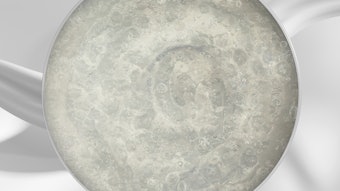The Lubrizol Corp.’s Noveon Consumer Specialties has introduced cassia-derived polymers for improved deposition, enhanced conditioning and distinctive sensory attributes in hair cleansing formulations. Sensomer CT polymers (INCI: Cassia Hydroxypropyltrimonium Chloride), naturally derived from the ayurvedic plant cassia, are said to meet the needs of a variety of hair types. The polymers are offered in two varieties, Sensomer CT-250 Polymer and Sensomer CT-400 Polymer, the difference being that CT-250 has a charge level of 2.5%, while CT-400 has a charge level of 4.0%.
While CT-250 has a medium average charge density, dispersion viscosity and clarity in surfactant chassis, CT-400 has a high average charge density with low dispersion viscosity and clarity in surfactant chassis. CT-250 has a lubricious feel in a wet stage and a smooth feel in a dry stage, whereas CT-400 has a clean feel in a wet stage and a soft feel in a dry stage.
According to the company, the polymer line helps to deposit silicone better than traditional cationic conditioning polymers. This enables the use of lower levels of silicone and cationic polymer to deliver equivalent or better overall conditioning performance.
The company conducted a sensory panel test and found that shampoo formulations based on the cassia-derived polymers outperformed formulations based on cationic guar and polyquaternium-10, with regard to comb force reduction and feel in both the wet and dry states.
The enhanced conditioning imparted by the cassia-derived polymers reportedly allows for improved wet and dry combing of hair. Additionally, the polymer line is said to enhance foam richness in surfactant-based cleansers, is substantive, and reportedly controls frizz to leave hair looking smooth and silky.
In addition to hair cleansing formulations, the polymers can be formulated into hair treatments and conditioners, body washes and facial cleaners.










